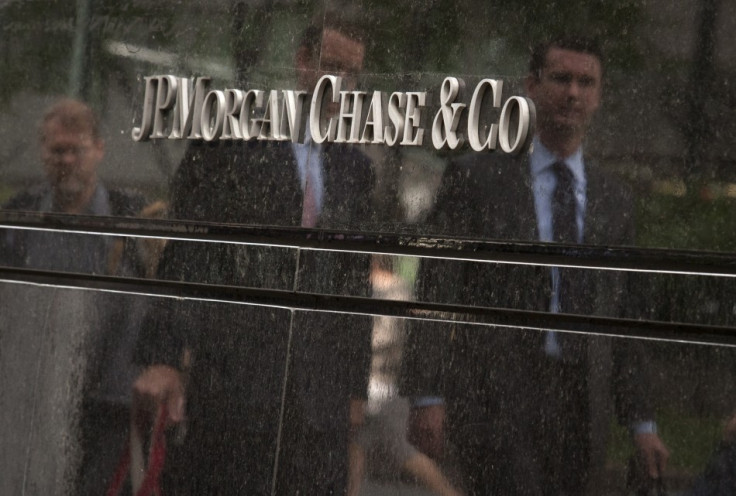London Whale: US Charges Javier Martin-Artajo and Julien Grout but not Bruno Iksil over JPMorgan Loss

Two former JPMorgan executives linked to the "London Whale" Bruno Iksil have been charged with several counts of fraud by US authorities for allegedly trying to cover up the bank's vast losses.
Javier Martin-Artajo, who headed up the JPMorgan team that made a series of catastrophic trades resulting in a $6.2bn (£4bn, €4.7bn) loss for the bank, and Julien Grout, who was tasked with recording and distributing daily values on the team's positions, have been charged with four counts, including wire fraud, falsifying books and records, making false filings with a US regulator, and conspiracy.
US prosecutors accuse the two men of falsely hiding losses and causing JPMorgan to report false financial data to the markets in the first quarter of 2012.
However Iksil, the London Whale who placed the bad but legal bets, will avoid criminal prosecution.
The London unit in which all three men worked was JPMorgan's Chief Investment Office, and the portfolio in which billions of dollars were lost was specifically designed to hedge the bank's risk exposure.
UK regulators are currently investigating the London Whale losses. JPMorgan boss Jamie Dimon has already faced down US regulators and conceded that "there was a material weakness in our internal control over financial reporting".
Dimon: There was no lying
Dimon insisted the troubled investment bank made appropriate disclosures during the London Whale crisis, telling an investor conference in New York that the bank did "everything that we thought was the right thing to do" as the scale of the losses began to emerge in April last year.
"There was no hiding, there was no lying ... but we were wrong about stuff," he said.
"Nothing was done that was deliberate in any way, shape or form. I'm completely and totally comfortable about that."
The bank has been criticised for allegedly holding back information from regulators, but Dimon said nothing was withheld and "we didn't know ourselves sometimes" as JPMorgan tried to mop up in the aftermath.
Dimon survived in his dual role as chairman and chief executive at JPMorgan, after a putative shareholder revolt failed to materialise.
Just 32.2% of shareholders voted for a new chairman, down from the previous year's 40.1% - strengthening Dimon's position in both roles.
Some shareholders had been concerned that more crises could potentially engulf the bank unless separate people were in the chairman and chief executive positions.
© Copyright IBTimes 2024. All rights reserved.






